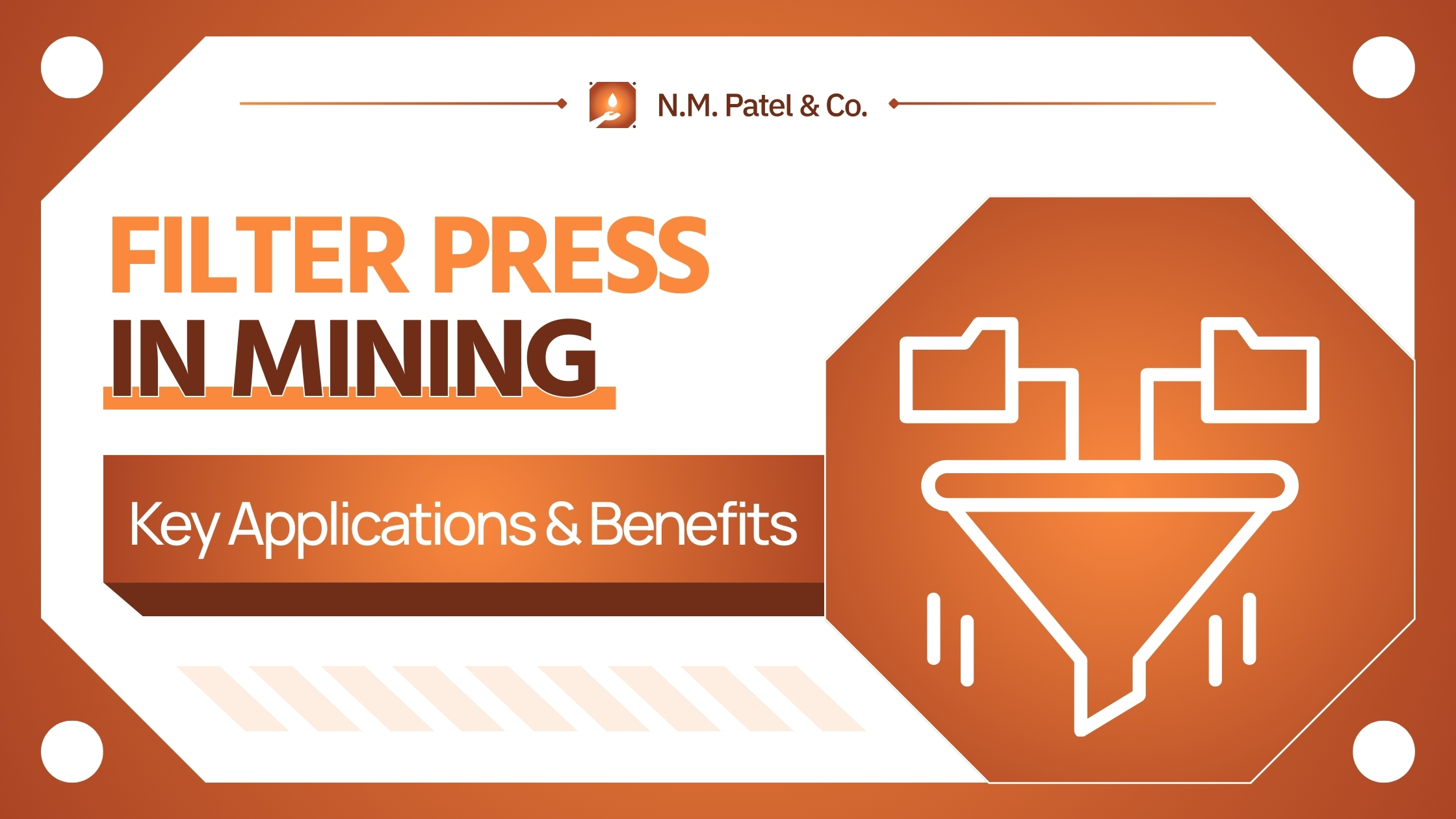Mining is one of the most resource-intensive industries in the world. Every stage, from ore extraction to refining, generates large amounts of slurry, tailings, and wastewater. Efficient filtration is critical to ensure both productivity and environmental compliance.
That’s where the filter press in mining plays a vital role.
Why Filtration Matters in Mining
Mining operations deal with slurries that contain fine particles, chemicals, and large amounts of water. Without proper separation:
- Valuable minerals are lost in the waste stream.
- Tailings ponds fill up quickly, creating safety and environmental risks.
- Water consumption and disposal costs increase.
Filter presses solve these issues by separating solids from liquids with high efficiency.
Key Applications of Filter Presses in Mining
1. Tailings Management
Mining generates huge volumes of tailings that must be managed safely. A filter press reduces moisture in tailings, producing a dry cake that is easier to transport and store. This minimizes reliance on tailings ponds and lowers environmental risks.
2. Metal Recovery
In mineral processing, fine particles of metals often remain in slurry. Filter presses recover these valuable solids, improving overall yield and profitability.
3. Water Recycling
Mining uses large amounts of water in crushing, grinding, and washing. Filter presses recover clean water from slurry, allowing plants to reuse it in operations and cut down on freshwater consumption.
4. Concentrate Dewatering
Mineral concentrates like copper, zinc, and gold require dewatering before further processing. Filter presses deliver a drier concentrate, reducing downstream drying costs and energy use.
Benefits of Using Filter Presses in Mining
- Higher efficiency: Handles large volumes of slurry with fine particles.
- Cost savings: Reduces waste handling and drying expenses.
- Environmental compliance: Produces safer, drier tailings for storage.
- Resource recovery: Recovers valuable metals and recycles water.
Real-World Example
A copper mine in South America installed filter presses to manage tailings. The system reduced tailings pond volume by 50% and recycled over 70% of process water. This not only improved sustainability but also saved millions in water procurement costs.
Common Challenges and Solutions
- Cloth blinding: Regular high-pressure washing or chemical cleaning solves this.
- Cycle time delays: Optimizing feed pressure and slurry consistency helps.
- Corrosion issues: Using special materials like polypropylene plates prevents damage from aggressive slurries.
With proper maintenance, filter presses can run efficiently for years in harsh mining environments.
Future of Filter Presses in Mining
The mining industry is under pressure to reduce its environmental footprint. Next-generation filter presses are now designed with automation, remote monitoring, and energy-saving hydraulics—helping mines operate more sustainably while keeping costs down.
FAQs on Filter Press in Mining
1. What is the main use of a filter press in mining?
It separates solids from slurry, helping with tailings management, metal recovery, and water recycling.
2. How do filter presses improve water use in mining?
They recover clean water from slurry, reducing the need for freshwater.
3. Can filter presses handle abrasive slurries?
Yes, with proper cloths and wear-resistant plates designed for mining applications.
4. Do filter presses reduce environmental risks?
Yes. By producing dry tailings, they minimize reliance on ponds and reduce leakage risks.
5. Which minerals benefit most from filter press use?
Copper, zinc, gold, iron ore, and other concentrates require efficient dewatering.


